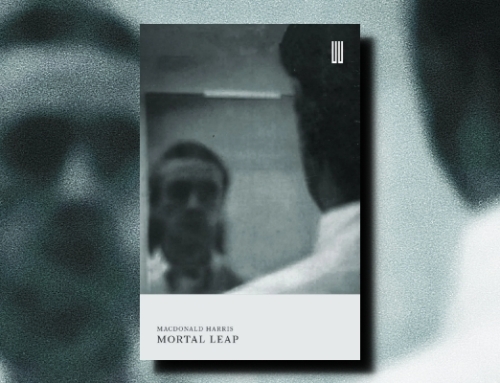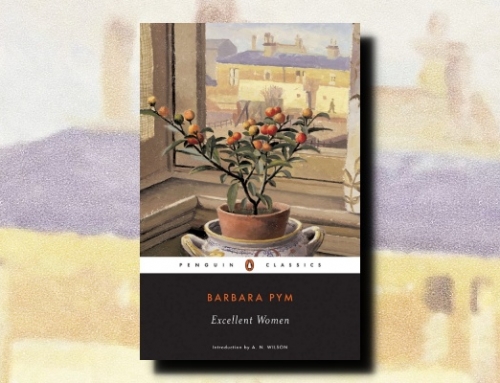The Little Buddhist Monk
by César Aira (El pequeño monje budista, 2005)
translated from the Spanish by Nick Caistor (2017)
New Directions (included in The Little Buddhist Monk & The Proof; 2017)
92 pp
 Long-time readers of this blog know that I’m a big fan of César Aira. His work has delighted me since I picked up Ghosts back in 2008, and each time New Directions announces they’re releasing something else from him I get giddy with excitement. Today is another release day! Of two Aira books — The Little Buddhist Monk and The Proof — under one cover. I’m posting on each separately. Though each is delightful in its own way, I found The Little Buddhist Monk to be the best Aira novella I’ve read in years, so prepare for some gushing.
Long-time readers of this blog know that I’m a big fan of César Aira. His work has delighted me since I picked up Ghosts back in 2008, and each time New Directions announces they’re releasing something else from him I get giddy with excitement. Today is another release day! Of two Aira books — The Little Buddhist Monk and The Proof — under one cover. I’m posting on each separately. Though each is delightful in its own way, I found The Little Buddhist Monk to be the best Aira novella I’ve read in years, so prepare for some gushing.
If you don’t know much about Aira then perhaps a bit of background is useful for this book. Much of Aira’s work contains commentary about his writing process, making his books strange metafictional exercises about themselves. Aira has reported that his aesthetic approach is a kind of forward thrust: he sits down to write in a cafe, writes himself into a corner, and then tries to get out of it the next day without revising. He’s also liberal about letting the outside in, meaning if a fly lands on his table it’s possible that fly with also land in his text. And while much of his work focuses on memory and dream, with beautiful explorations of his region of Argentina, he also writes about the very aesthetic philosophy he’s using to construct the novel he’s working. I found The Little Buddhist Monk to be one of his most metafictional novels yet.
That may not sound likely when the book is called The Little Buddhist Monk and is actually about a little Buddhist monk. A little set up, though, is in order. When the story begins, and I can just see Aira sitting down to write, surprising himself, even, with what he has to say. Here’s how he begins:
A little Buddhist monk was anxious to emigrate from his native land, which was none other than Korea.
I love that coda at the end. It’s as if he’s writing to convince himself that he’s starting. I find it charming. This monk is indeed very small, and in Aira’s world that could mean as small as an infant who can run around quickly. He’s smart, he’s joined a unique brotherhood that encourages him to just go out and make his way in the world, and he’s anxious for adventure. One day, he overhears a French couple whom he overhears as they say: “Someone who speaks French.” Assuming they are looking for assistance, and failing to “[take] into account his timidity, his insignificance, or the general pointlessness of everything,” the multilingual monk jumps up: “Moi, je parle français.” He’s too excited about the possibility of some adventure.
He failed to realize that what he had heard might only be part of the proposition. “Someone who speaks French,” could be the conclusion of a phrase along the lines of “Let’s hope we don’t have the misfortune to bump into someone who speaks French.” Which only goes to prove that sometimes it’s better not to think.
Sometimes it’s better indeed, says the author who just forges forward each day! And that’s how this book goes, Aira taking us by the hand and just weaving in and out of the various stories he’s come up with to tell this strange and wonderful tale that, in one particularly poignant passage, goes on to recount the suicide by jumping off a pagoda of a Chinese pony whose “lack of knowledge of Korean botany meant it could not find the toxic herbs that could have brought its existence to a discreet end.” Yes, the concept is strange and even funny, but it’s truly a lovely passage filled with a bitter irony.
What a beautiful, sad story, the French couple commented, and what a rich message it must surely contain for anyone who can correctly interpret it.
I take that to mean that the French couple could not. Maybe no one can. But that is beside the point: its beauty is indisputable.
And here’s my theory. Aira, at some point in the story, decided I think that he himself was this little Buddhist monk, and we readers are the French couple, being led by the minuscule, energetic little man who seems to have all of the knowledge, who takes us to strange, beautiful places that we might not understand but that we marvel at nonetheless. A few years ago I was talking with someone who visited Aira in Argentina, and her portrait of Aira was much like this little Buddhist monk: the man was go, go, go all day, taking her from one place to another, never seeming to tire as he tried to show her everything in the few hours they shared. I am so pleased to see this character in this book.
But perhaps at this point in the story a reader, like the French couple, thinks something like this:
They had been very rash in allowing themselves to be taken so far, but before they had been even more rash in trusting everything they were seeing and hearing uncritically, without thinking.
And perhaps Aira wondered if he would falter or be able to bring the story to a satisfactory close:
It was like the career of those artists who as they approach the finish begin to lose energy and inventiveness, and start doing things in a slapdash way, however they can. After all, a joke that goes on too long is also bound to have a hasty, untidy ending.
Frankly, I worried myself. Sometimes Aira does stumble at the end, though I don’t mind too much since the journey has been so delightful. Aira wants to carry it off, and we want to be carried. At one point in the story the French couple thinks: “So why not continue to trust in that magic?” And this is certainly a case where the magic does not fail. The conclusion of The Little Buddhist Monk exceptionally fitting and satisfying. I want to leave you with a few parting lines. Do you know what they mean just yet? If so, that’s great. If not, that’s great too.
Night had fallen, and the little Buddhist monk had been left all alone, far from home. His plan had failed: the birds had flown. With hindsight, he realized he had let his imagination run away with him. How was someone so small and weak going to trap such huge powerful quarry in his nets? Greater feats had been heard of, but not in cruel reality.


















What do French fries have to do with The Little Buddhist Monk, someone should ask? Nothing. I wish this weren’t the cover, but I imagine it’s because of the inclusion of The Proof which has a ketchup cover on the other side (see my post when I put it up). It’s enough for me to wish they’d just released these as two separate editions, because I’d love to see a great cover for this great novella.
Interesting thoughts on the metafictional aspects. The cover is dire though. I just read The Proof recently, my first Aira, and should be posting a review of that up next week sometime. This will be my next.
Thanks Trevor. Sounds like another great reading tip to someone unfamiliar with many of these authors.
BTW after waiting for my library to get “Fever Dream”, it arrived yesterday. An amazing,original, dizzying trip! I’m about half through it. Please no spoilers as to how it ends.
I read Aira for the first time this year and so far have read three of his books. It’s good to see the translations to English are still coming, although he writes so fast it is surely impossible for them to keep up. About the issue of the cover, I Googled the Spanish language title and found two different covers. See what you think of them:
http://148.206.53.84/9786074451870.jpg
https://mansalva.com.ar/wp-content/uploads/2015/06/C%C3%A9sar-Aira-Peque%C3%B1o-monje-budistalight.jpg
The first one is ok, but the second is arguably worse than the french fries. Then I checked to see what the UK cover looks like. Here that one is:
https://static1.squarespace.com/static/52417ba3e4b0992daeb13d8a/t/58f74c84725e253e7bc23218/1492601997144/
Perhaps, Trevor, you might want to replace your copy with the British one? Or you can always do what we did with text books when I was in elementary school and make book jackets out of brown paper. They you could draw your own cover!
Yes, the worst is the second Spanish one, but notice that the other two have the horse! I’d go for either of them!